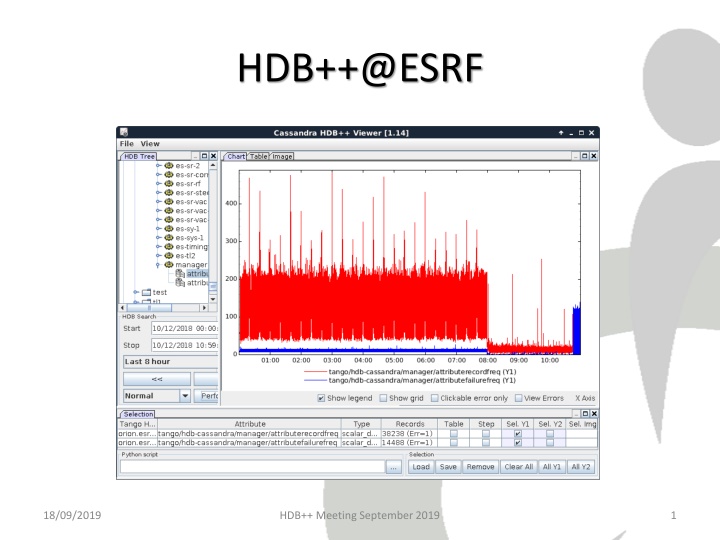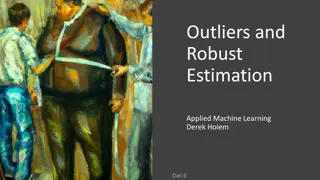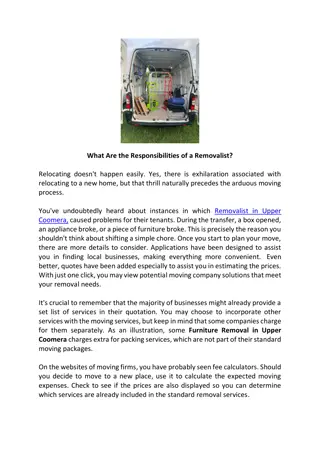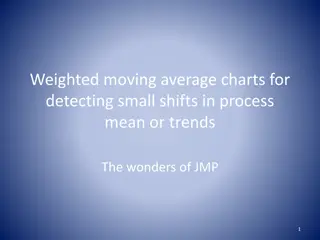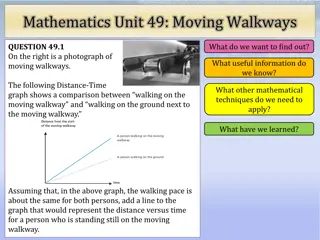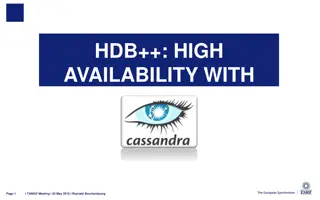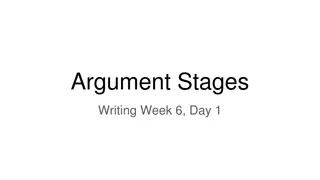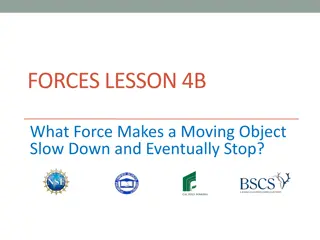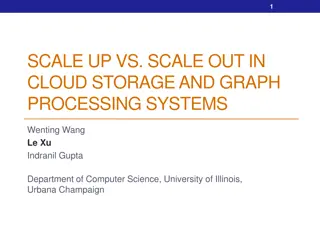Reasons for Moving Away from Cassandra
Cassandra poses challenges such as node density limitations, difficulties in managing data deletion, and performance issues with queries, encouraging a shift towards alternative solutions. The discussion explores the drawbacks of Cassandra in handling large data volumes and maintaining cluster efficiency at a September meeting of HDB++@ESRF.
Download Presentation

Please find below an Image/Link to download the presentation.
The content on the website is provided AS IS for your information and personal use only. It may not be sold, licensed, or shared on other websites without obtaining consent from the author.If you encounter any issues during the download, it is possible that the publisher has removed the file from their server.
You are allowed to download the files provided on this website for personal or commercial use, subject to the condition that they are used lawfully. All files are the property of their respective owners.
The content on the website is provided AS IS for your information and personal use only. It may not be sold, licensed, or shared on other websites without obtaining consent from the author.
E N D
Presentation Transcript
HDB++@ESRF 18/09/2019 HDB++ Meeting September 2019 1
HDB++@ESRF 18/09/2019 HDB++ Meeting September 2019 2
Why moving away from Cassandra? 18/09/2019 HDB++ Meeting September 2019 3
Why moving away from Cassandra? Max recommended node density for smooth operation: 3-5 TB per node using SSD 1-2 TB per node using spinning disks Garbage collector => not well suited for large queries which can bring down a datacenter (High availability was one of the main Cassandra strong points) We didn t try with G1GC Difficulties to tune the partition size in a transparent manner for the applications 18/09/2019 HDB++ Meeting September 2019 4
Why moving away from Cassandra? Difficult to delete data and free disk space Performance for queries with arrays Performance for queries with arrays on specific array index Manpower required to maintain the cluster, especially if it is decided to keep all the data and expand the cluster ( more Cassandra nodes to maintain) 18/09/2019 HDB++ Meeting September 2019 5
Why moving away from Cassandra? Still on time to choose an alternative for EBS (New ESRF accelerator) Monitoring and maintain a big cluster is a full time job and if not done well can lead to difficult situations difficult to recover You need to be able to cope with the cluster growth 18/09/2019 HDB++ Meeting September 2019 6
Is Cassandra a bad choice for HDB++? Very reliable for writing data without downtime, even when upgrading Cassandra version It depends on the use case and on the manpower (and skills) available Still some areas of potential improvements for the HDB++ Cassandra backend Find a way to maintain reasonable partitions size <=> key to get a cluster running smoothly and with fast maintenance operations 18/09/2019 HDB++ Meeting September 2019 7
Is Cassandra a bad choice for HDB++? ScyllaDB (Cassandra compatible C++ version) might be a good alternative too? Explore ways to limit/forbid/throttle big queries from users 18/09/2019 HDB++ Meeting September 2019 8
If you use Cassandra Use Cassandra-reaper if you have more than 3 nodes to automate repair process Use at least 2 data centers to minimize the impact of users big queries on the archiving of the data 18/09/2019 HDB++ Meeting September 2019 9
